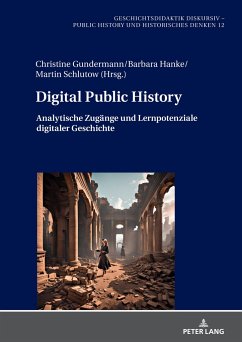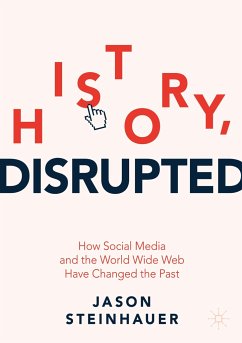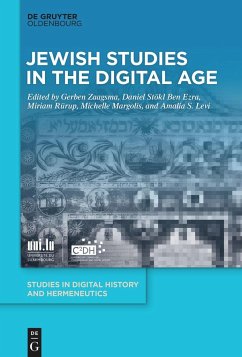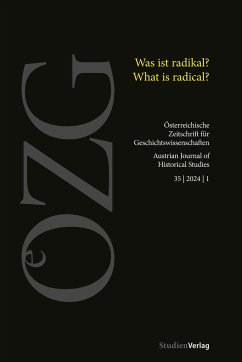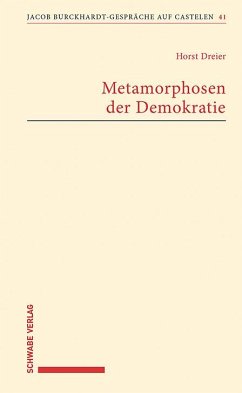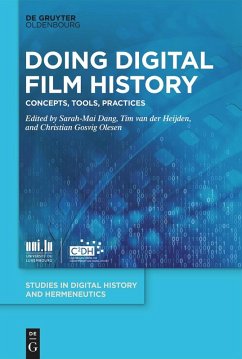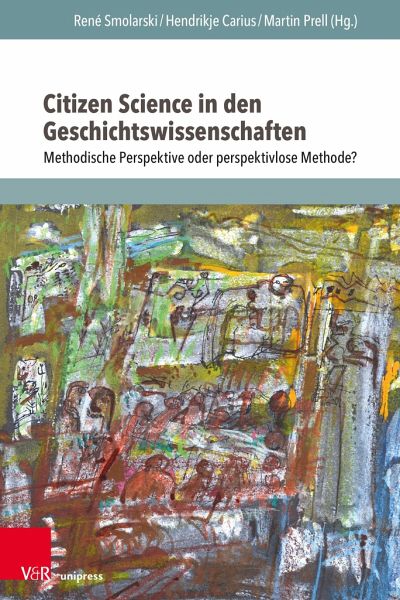
Citizen Science in den Geschichtswissenschaften
Methodische Perspektive oder perspektivlose Methode?
Herausgegeben: Smolarski, René; Carius, Hendrikje; Prell, Martin;Mitarbeit: Oswald, Kristin; Hodel, Tobias; Schneider, Christa; Lemaire, Marina; Rommelfanger, Yvonne; Moeller, Katrin; Müller, Moritz; Aehnl
Versandkostenfrei!
Sofort lieferbar
55,00 €
inkl. MwSt.

PAYBACK Punkte
0 °P sammeln!
Die Digitalisierung des Wissenschaftsprozesses ist mit der Öffnung der Wissenschaften für partizipative Formate auf verschiedenen Beteiligungsebenen eng verbunden. Citizen Science bzw. bürgerwissenschaftliche Ansätze gewinnen dabei auch in den Geschichtswissenschaften zunehmend an Bedeutung. Der Band gibt einen praxisorientierten Einblick in vorhandene Infrastrukturen sowie unterschiedliche Projektansätze in den Kernbereichen zivilgesellschaftlicher Beteiligung an historischer Forschung. Dabei werden exemplarisch Potenziale und Herausforderungen bei der Konzeption, Implementierung und Dur...
Die Digitalisierung des Wissenschaftsprozesses ist mit der Öffnung der Wissenschaften für partizipative Formate auf verschiedenen Beteiligungsebenen eng verbunden. Citizen Science bzw. bürgerwissenschaftliche Ansätze gewinnen dabei auch in den Geschichtswissenschaften zunehmend an Bedeutung. Der Band gibt einen praxisorientierten Einblick in vorhandene Infrastrukturen sowie unterschiedliche Projektansätze in den Kernbereichen zivilgesellschaftlicher Beteiligung an historischer Forschung. Dabei werden exemplarisch Potenziale und Herausforderungen bei der Konzeption, Implementierung und Durchführung von historisch orientierten Citizen-Science-Projekten beleuchtet sowie Erfolgskriterien und künftige Perspektiven herausgearbeitet. Der Band möchte somit zur Debatte um die Nutzung von Citizen Science als Methode innerhalb der historischen Forschung beitragen.
The digitalisation of scientific processes is closely linked with the opening of sciences for participative formats on various levels. Citizen Science or community science approaches respectively are becoming increasingly important in history studies. This volume offers a practical insight into both infrastructures and various project approaches in historical research. Potentials and challenges in the conception, implementation and realisation of historically oriented citizen science projects are illuminated and criteria for success and future perspectives are elaborated. The volume thus aims to contribute to the debate on the use of citizen science as a method within historical research.
The digitalisation of scientific processes is closely linked with the opening of sciences for participative formats on various levels. Citizen Science or community science approaches respectively are becoming increasingly important in history studies. This volume offers a practical insight into both infrastructures and various project approaches in historical research. Potentials and challenges in the conception, implementation and realisation of historically oriented citizen science projects are illuminated and criteria for success and future perspectives are elaborated. The volume thus aims to contribute to the debate on the use of citizen science as a method within historical research.



